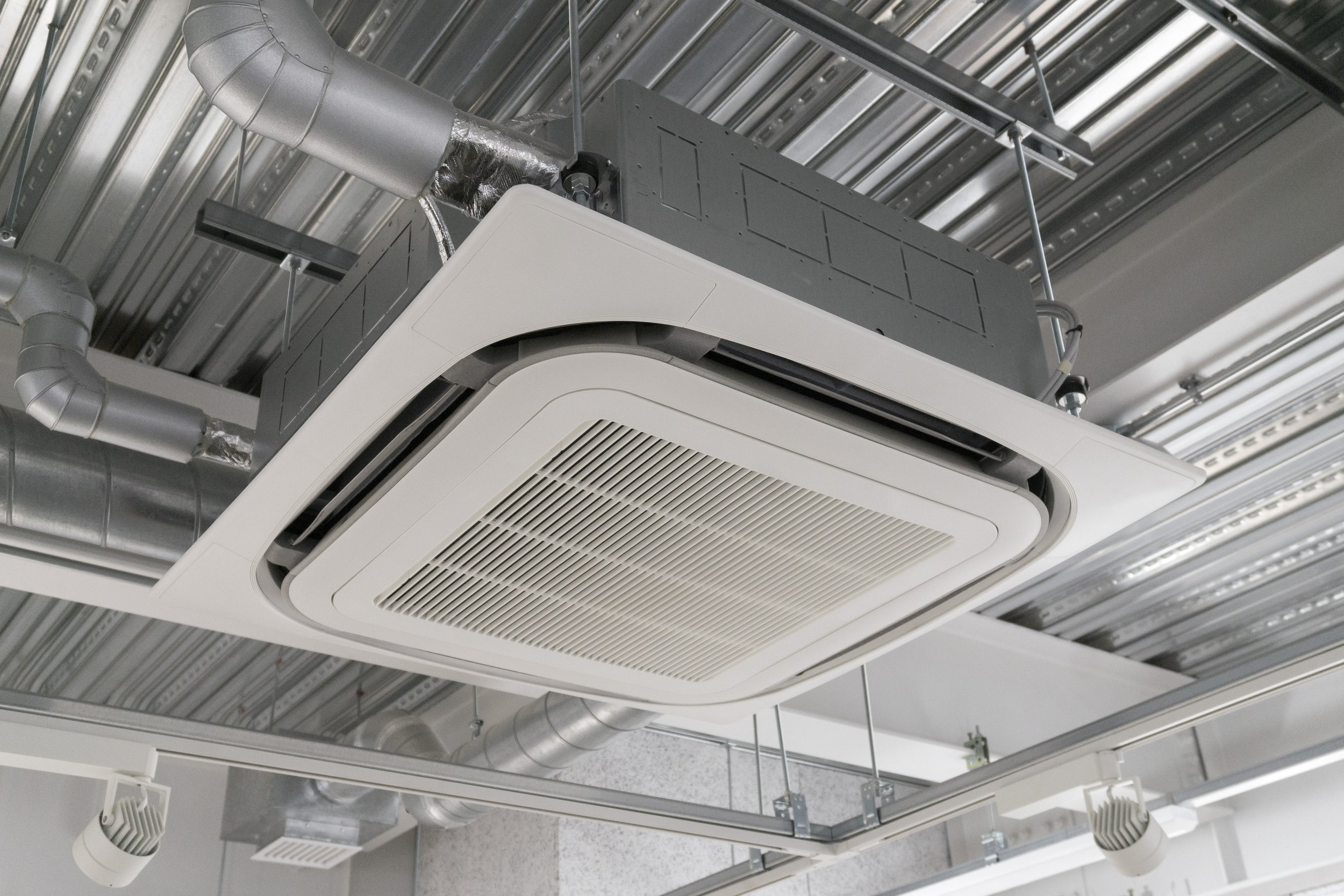Forced Air vs. Central AC: What’s Right for Your Home?
When choosing a cooling system for your home, one question often comes up: What type of air conditioning is best for me? The two most common types are central air conditioning and forced air system. Let’s break down the similarities and key differences to help you decide which system makes the most sense for your home.
Central Air Conditioning
Central air conditioning is a system designed to uniformly cool your entire home. This type of air conditioning system consists of an outdoor unit that holds the compressor and condenser, and an indoor unit with the evaporator coil. Warm air from inside your home is drawn in, cooled by the evaporator coil, and then dispersed through your home ducts and vents to all the connected rooms. This setup ensures consistent temperatures throughout your entire living spaces.
One of the main advantages of central air conditioning is its ability to maintain a comfortable indoor environment while using existing ductwork. This can make it a cost efficient system if your home already has a forced air system installed for home heating purposes. The downside to this system however is that it cools your entire home to a single temperature, which might not be the most ideal when you have different preferences for different rooms for example if different household members prefer a different temperature.
Forced Air Conditioning
The term "forced air" refers to the method of distributing air throughout your home using a system of ducts and vents. This system can be used for heating and cooling. In a heating system, a furnace heats the air, which is then pushed by a blower through the ductwork to warm each room. Similarly, when paired with a central air conditioning unit, the same ductwork is used to distribute cooled air during warmer months.
Forced air systems are popular due to their efficiency and the ability to quickly adjust indoor temperatures. They can also be integrated with air filtration systems, improving your home's air quality. Regular maintenance, such as changing filters and duct cleaning, is essential to keep the system running efficiently and to maintain good air quality. However
Which System Is Right for Your Home?
Choosing between central air conditioning and a forced air system depends on your home's existing infrastructure and your specific comfort needs:
Existing Ductwork: If your home already has ductwork from a forced air heating system, adding central air conditioning can be a seamless process.
Temperature Control: If you want varying temperatures in your home’s rooms, a forced air system might be more suitable since it gives you the greater ability to control each room’s temperature.
Budget Considerations: Installing central air conditioning can be more cost-effective if you're utilizing existing ductwork, whereas installing new ductwork for a forced air system can increase costs.
Air Quality: Forced air systems can incorporate advanced filtration systems to enhance indoor air quality, which is beneficial for households with allergies or respiratory concerns.
Final Thoughts
Understanding the distinction between central air conditioning and forced air systems is crucial when considering cooling solutions for your home. Central air conditioning focuses on cooling the air, while forced air systems handle the distribution of that air. Often, these systems work together to provide a comfortable indoor environment.
For homeowners looking to upgrade or install a new cooling system, contact Air West Mechanical to get a quote for a personalized recommendation based on your home's specific needs and existing infrastructure.

